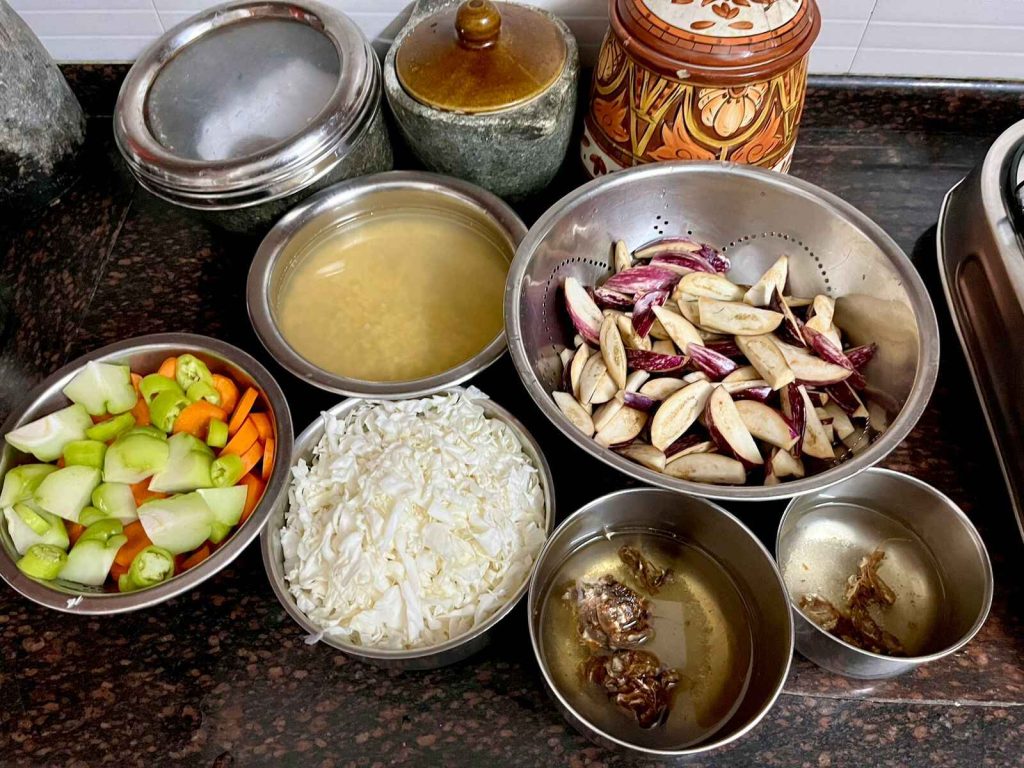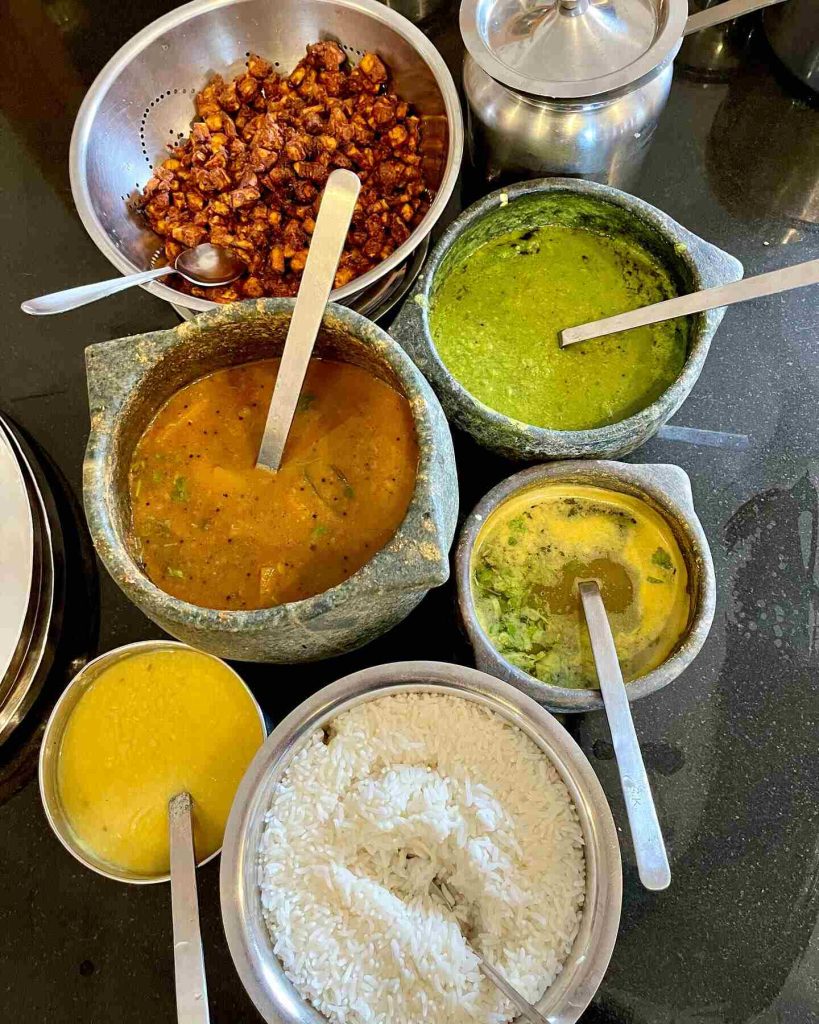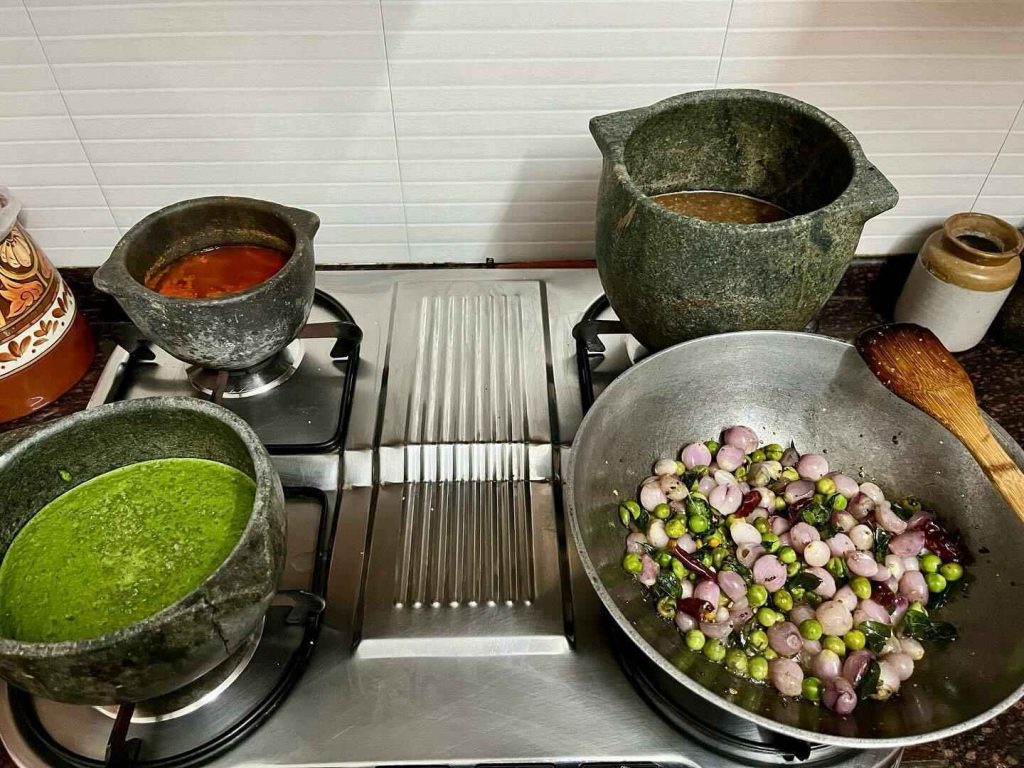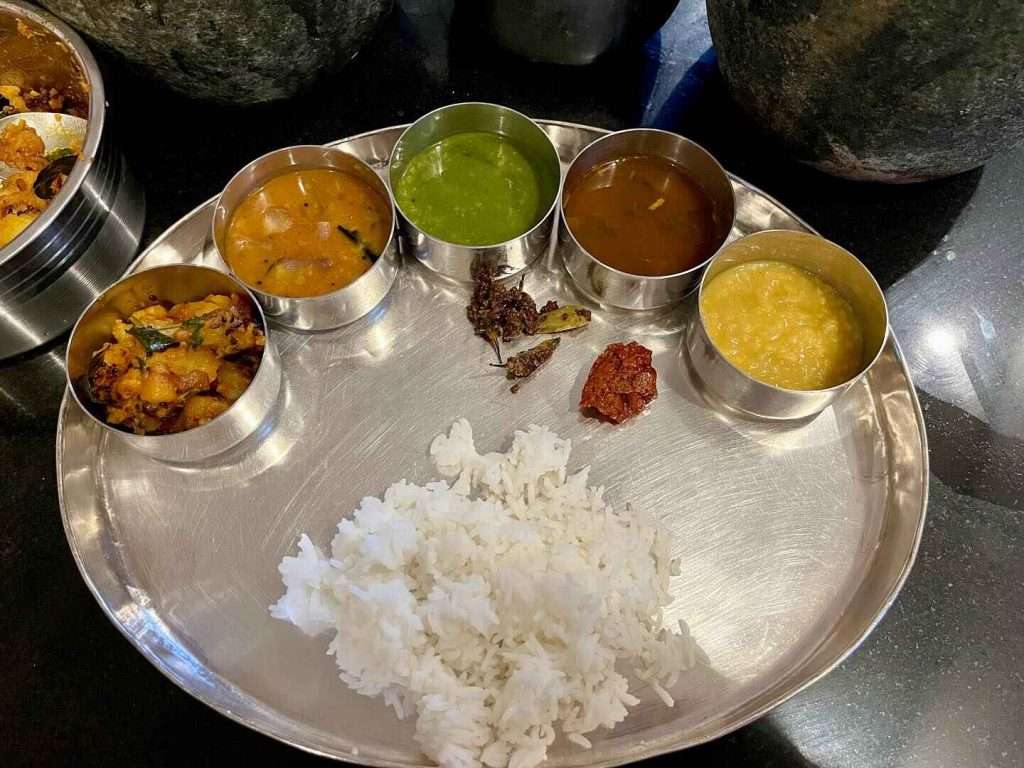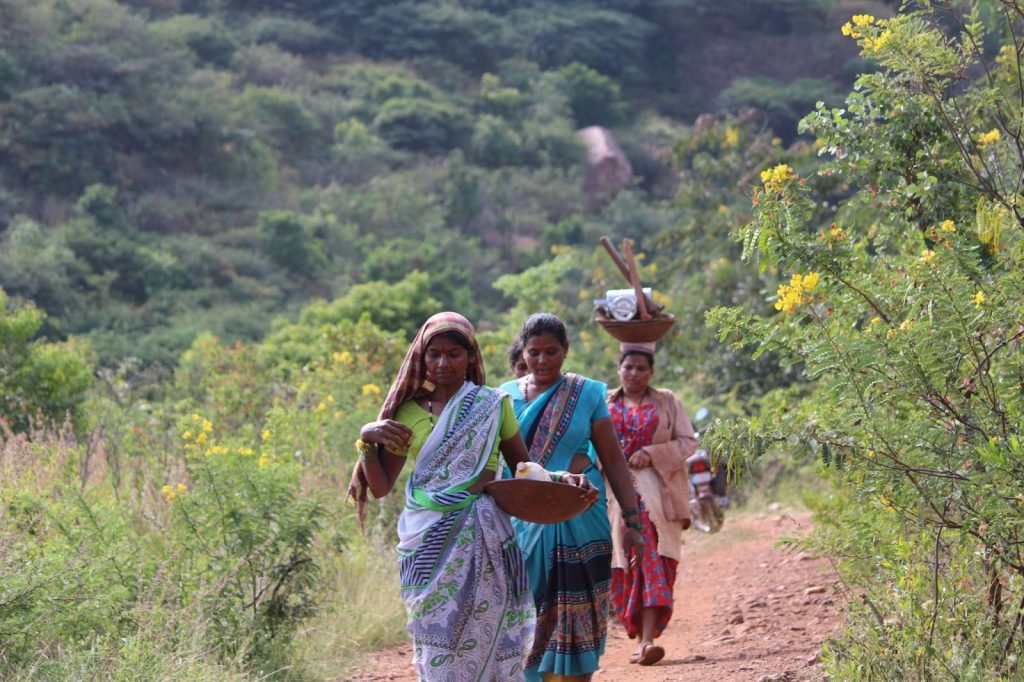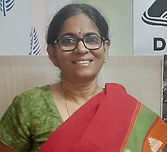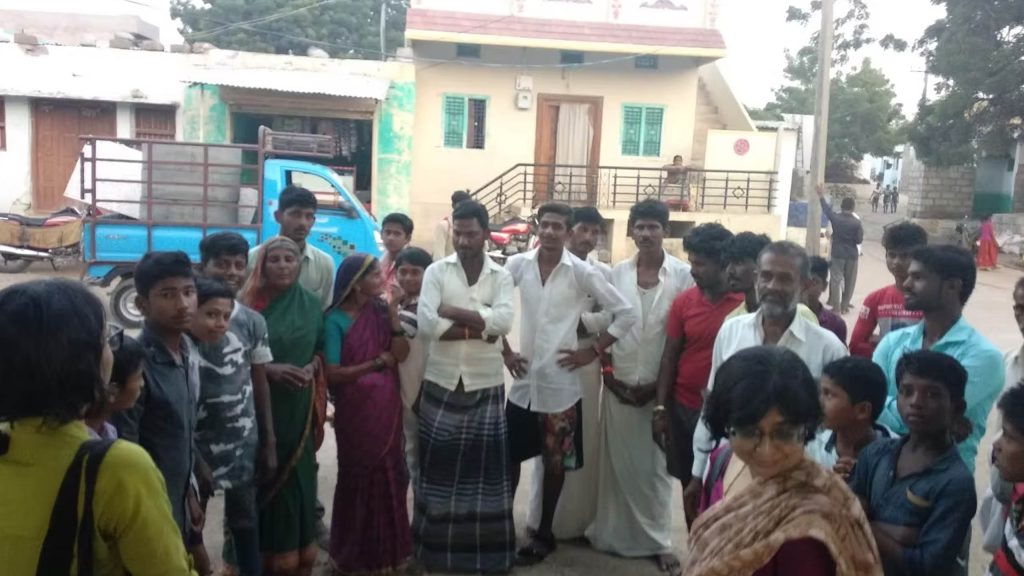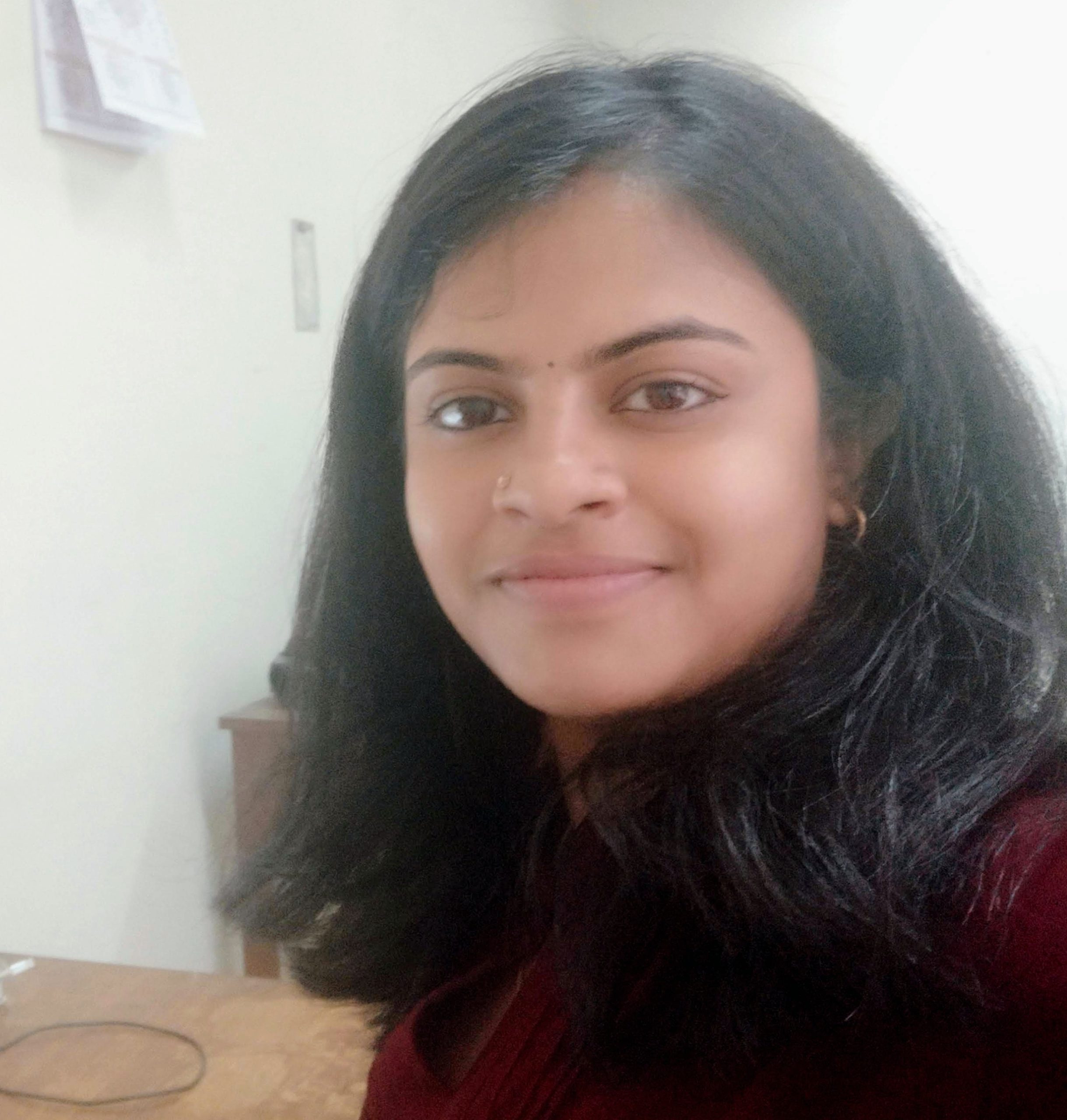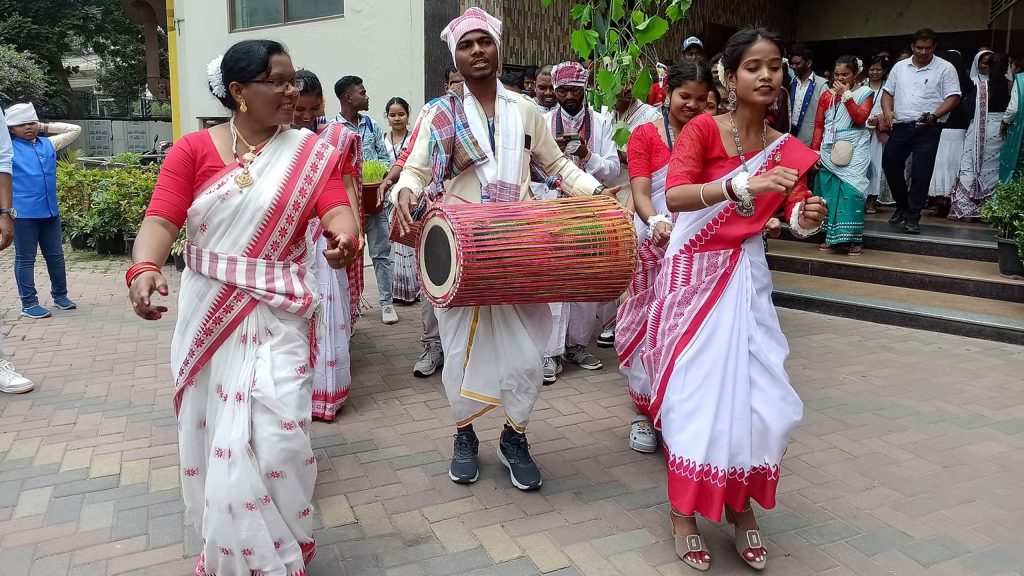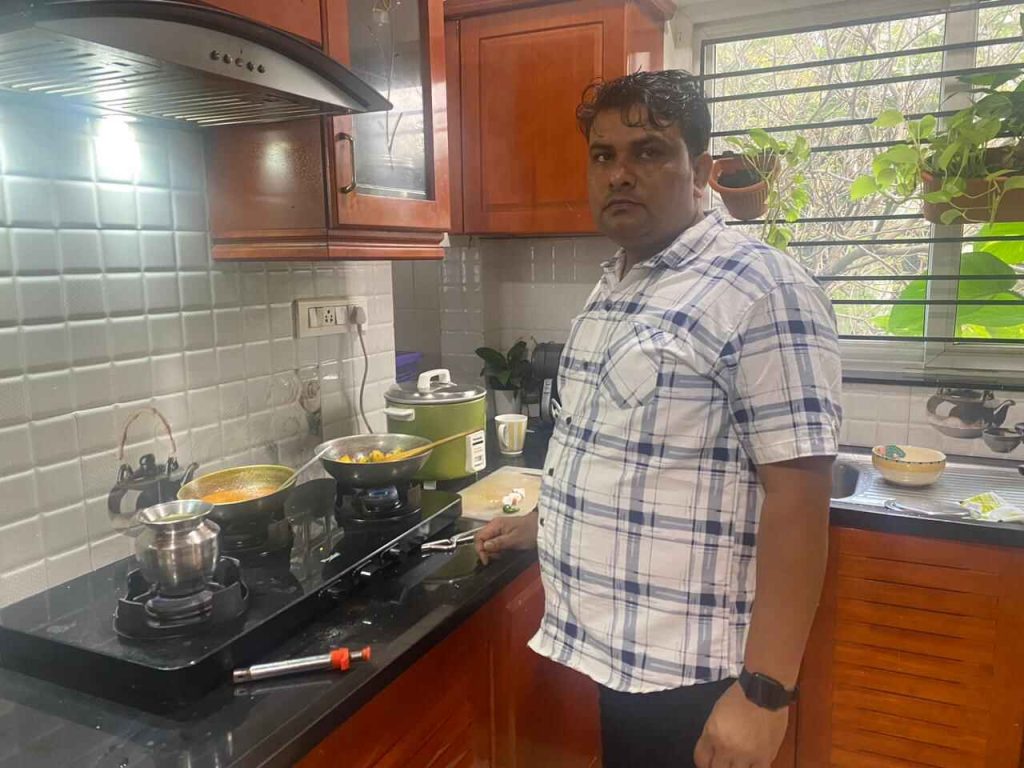
In October 2004, while scouting around for an apartment with my fiancé in south Chennai, I found myself also looking for a cook. Everyone I shared lunch with in the newsroom, waxed eloquent about their bhaiyas, referring to the cooks from the other side of the Vindhyas – Bihar, Odisha, Uttar Pradesh, West Bengal – who had slowly but steadily begun making Chennai their home, and had begun taking over the kitchens of urban millennia, dishing out sumptuous home-cooked food that traversed the range of the country, becoming almost an extension of their families.
My mother asked around and helped me find a bhaiya – a neighbour asked a friend who asked another, and even before we had paid the advance for our rented apartment, I’d struck gold with Vishwakarma.
I still remember how Vishwakarma showed up for his job interview on a Sunday evening in early November to meet with my mother and I. It was his only day off, he said. He was dressed neatly in a hand-pressed white safari-like suit that was a tad oversized for his tall and lanky figure.
He spoke very softly but there was a kindness about him that I instantly warmed up to. Every time my mother asked him a question about his culinary skills, there was confidence about him. “Mata ji, aap khaake to dekhiye,” he said.
Two days after I was married, and we moved into our apartment, Vishwakarma began showing up at our doorstep, at 5.30am, sharp.
He was the ultimate professional – never late, rarely took a day-off without prior intimation and brought a certain tenacity and a sense of pride to his workplace.
I still remember how amazed I was by his culinary skills – no points for getting the shahi paneer right but it was how he filled our kitchen with the flavours of my childhood was what intrigued me, day after day.
I remember watching him as he finely chopped the carrot and the snake gourd with singular focus, steamed it, tempered it with mustard seeds and urad dal, before garnishing it with just the right portion of freshly grated coconut to make a classic south Indian poriyal or stir fry.
When he was cooking rasam, the home wafted with the aroma of this tamarind and tomato concoction that is characteristic to cuisine from Tamil Nadu. Even though its recipe is fairly straightforward – boil tamarind water with tomatoes and rasam powder, and when this is cooked, add some toor dal and water to bring it to the right consistency before adding a tadka of mustard seeds, urad dal, asafoetida, and curry leaves – cracking the rasam code isn’t easy.
I always wondered how, over time, he had seamlessly transitioned from the smoky, mustard oil temperings of cumin and fenugreek and the litti-chokha diet, to making curd rice and lime pickle his staple at dinner and dal chawal with a poriyal for lunch.
Vishwakarma was my first up, close and personal introduction to the now growing and thriving network of migrant cooks who travel on a bus from their village/s, and spend almost two nights on a train, to start life – afresh, in a city whose people, culture and language they have no clue about.
In Chennai’s Mylapore neighbourhood, considered the hub for the classical arts and also is in a sense, the nerve centre for Brahmin orthodoxy, it is heart-warming to hear stories from my friends of their aunts, mothers-in-law and grandmothers, who have learnt to outsource their kitchens to these men who are willing to learn not only how an authentic sambar is made but also tweak it according to each household, letting the matriarch of every home, have a taste of her own sambar, so to speak.
In making them a part of our homes, and letting them privy to the chaos of our homes, I have also had the privilege of tasting a small slice of their migrant lives.
The story of the migrant cooks in Chennai is that it is as unique as it is universal. Even though these young men belong to different parts of North, central and East India, and speak different languages, they are united in their struggles, hopes, aspirations, seeking a future where their children will be educated and go to an “office” to work.
Vishwakarma was just married in 2000 when he moved to Chennai, leaving behind his young bride to take care of his elderly parents. But three years into the marriage, travelling back home twice a year to meet his wife and in the hope to grow his family, Vishwakarma became increasingly desolate with no sign of “good news”. He brought his wife to Chennai to meet gynaecologists who suggested a series of fertility treatments. Five years later, their first daughter was born.
In the last 19 years, through friends and friends of friends, I’ve met so many cooks – Misralal, Deepak, Saroj Kumar, Chhotu Mukhiya, Brajesh Gupta, Amarender, Dinesh – who I’ve come to think of outsiders-insiders; a band of boys that leave their homes behind to build a new life that offers them a steady portion of security, and a fixed income that helps feed their families, elderly parents, wife, children and their education.
Meet Dinesh Singh from Ghazipur near Benaras, whose work ethic is evident in the very way he views his work – as a profession that serves a purpose.
Dinesh moved to Chennai in 2010 to earn a living and make it work in a big city. “I belong to a community of farmers. In our village, the rains are unpredictable, electricity is a problem, there are no rules and regulations,” he says.
You speak English, I ask when he uses the words rules and regulations? “A little bit,” he responds in Hindi, affirming that his stint in Chennai has helped him ensure a stable and solid roof for his parents, wife and two-year-old daughter. “I also spent a lakh of rupees recently and had a solar panel fixed on the terrace of my home,” he adds.
Chhotu Mukhiya from Bihar’s Madhubani district, part of Vishwakarma’s group, was roped into Chennai through a network of cooks already working here, who bring back a nephew or two, every time they return from their homes.
Mukhiya works in six homes – after all, in their context, time is money – only as a cook and uses his Sunday mindfully to get his house back in order.
Some arrive young, novices with little or no clue of life in the kitchen but those that are inducted into Marwari households are well-trained in the fine art of not only getting the phulkas right but also keeping a kitchen spotless and clean.
But one job after another, he learnt on-ground. “First, I worked as a waiter, and then I was part of a south Indian catering company and served meals; then as part of a large catering unit for an IT organization, I learnt to make rotis and a variety of North Indian dishes,” he says, “But somehow,I was always curious and interested to make south Indian food.”
It happened by chance, he remembers. In 2015, a friend who worked in the home of a Tamil Brahmin family that ate only vegetarian food – no garlic, even – in Chennai’s Thiruvanmiyur neighbourhood had to travel home for an emergency.
Opening my box everyday is a reminder not only of the beauty of these cultural exchanges in food that have happened by virtue of this migration but also the nuggets of flavours and conversations that come together every morning, letting the cauldron in my kitchen become a melting pot of Indian cuisine and culture.
The friend had to be away for three months and he requested Brajesh to fill in. “I’d call my friend every morning and the paati (grandmother) at home there, would patiently teach me one south Indian dish after another,” says Brajesh, who now works in six homes on a regular basis and is open to freelance gigs over weekends. “Parties, gathering, jo bhi,” he says.
What is also worth thinking about is that the men arrive in Chennai, despite the seemingly obvious anti-Hindi movement that has existed in the city, with the locals often seeing them as a potential threat to their jobs.
Like one day last year, social media posts were doing the rounds saying that Hindi speaking people in Tamil Nadu were being attacked. Brajesh’s phone was constantly busy as I tried frantically to reach him to see if he was okay.
This is just a passing cloud, Brajesh reassured me. This too shall pass, he said. And it did.
Brajesh works hard but unlike some cooks I know and have met, he goes home every evening to his wife and five-year-old son. “Right from the start, somehow, Chennai felt like home,” he says, “It felt safe; on some days, when I finish cooking for a party late at night, and ride back, I don’t feel afraid on the streets.”
It also helps that Brajesh now loves cooking and eating south Indian food too. The dish he takes pride in making is a south Indian version of aloo masala that is just a hearty coming together of onions and boiled potatoes that are tempered mildly with spices and herbs. Distinct from a spicy aloo that a poori in the north of India is often paired with. “It’s simple and tasty,” Brajesh says, “Suits my stomach and feels good.”
I am driving to work – there’s sambar rice with some south Indian style cauliflower fry for company in my dabba- and even though it’s not time for lunch I can’t stop thinking about why opening my box everyday is a reminder not only of the beauty of these cultural exchanges in food that have happened by virtue of this migration but also the nuggets of flavours and conversations that come together every morning, letting the cauldron in my kitchen become a melting pot of Indian cuisine and culture, tempered with stories of human grit and endurance, in pursuit of hope.
Akhila Krishnamurthy is an independent journalist and the founder of Aalaap, a boutique arts consulting and management company based in Chennai with presence across the world



